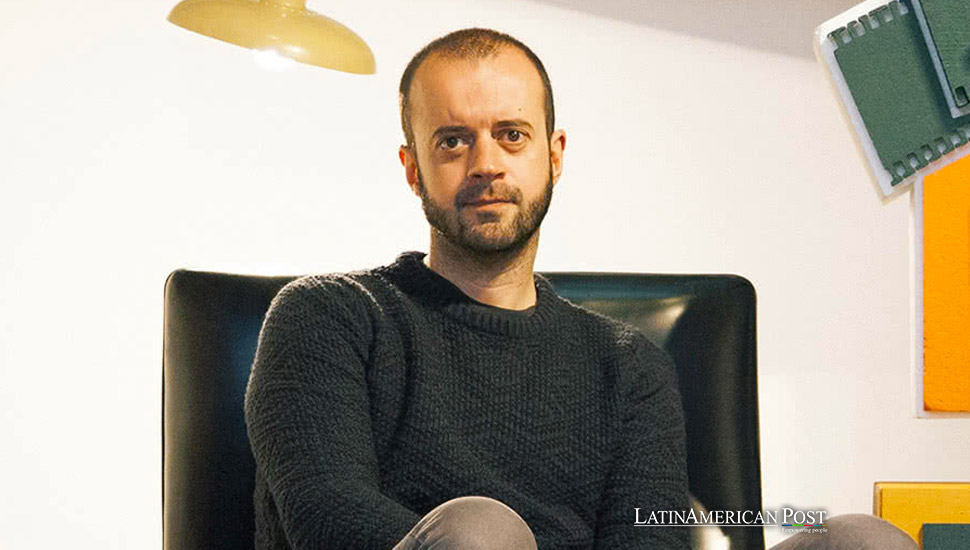Argentine Luján’s Novel ‘Subsuelo’ Adapted for New Spanish Film

Fernando Franco’s latest film, ‘Subsuelo,’ adapts the novel by Argentine writer Fernando Luján, exploring dark family secrets through a psychological thriller.
Spanish filmmaker Fernando Franco has recently completed filming his fourth feature, Subsuelo, a psychological thriller shot across various locations in Spain. The movie, which adapts the novel by Argentine writer Fernando Luján, delves into the intricate and dark relationship between siblings Eva and Fabián, twins on the verge of adulthood. They become embroiled in a tragic accident one summer night under mysterious circumstances known only to them and their mother, Mabel.
Exploring the Depths of Family Secrets
‘Subsuelo’ is not just a film; it explores the hidden depths and the often unspoken complexities within a family. Fernando Franco, a director known for his psychological narratives and intense character studies, has adapted Luján’s novel to reveal the underlying issues that families often conceal. The story revolves around the twin siblings and their involvement in a tragic incident, which acts as a catalyst for unraveling the buried secrets within their family.
The adaptation by Begoña Arostegui and Franco himself ensures that the essence of Luján’s novel is captured while translating it effectively onto the screen. Franco’s previous works, including ‘La Herida,’ ‘Morir,’ and ‘La consagración de la Primavera,’ have been critically acclaimed, significantly impacting national and international film festivals. This background sets a high expectation for ‘Subsuelo,’ promising a deep, psychological dive into the human psyche and familial relationships.
Latin American Influence and Cultural Resonance
The novel ‘Subsuelo’ by Fernando Luján, an Argentine writer, brings a unique Latin American perspective to Spanish cinema, reflecting the region’s rich cultural narratives and storytelling techniques. Luján’s work is infused with a distinct voice that captures his characters’ emotional and psychological landscapes. Adapting his novel into a Spanish film not only highlights the cross-cultural exchange but also underscores the universal themes of family, secrets, and psychological trauma.
Julia Martínez and Diego Garisa, who portray the twin siblings in ‘Subsuelo,’ play a crucial role in bringing the intricate dynamics and emotional turmoil of the characters to life. Their performances are instrumental in translating the depth and intensity of Luján’s novel to the screen, ensuring that the audience can deeply connect with the characters. This visual and narrative medium further amplifies the cultural resonance of Luján’s work, reaching a broader audience and fostering a greater appreciation for Latin American literature and its influence on global cinema.
A Director’s Vision and Artistic Integrity
Fernando Franco’s directorial vision is a cornerstone in the adaptation of ‘Subsuelo.’ Known for his meticulous attention to detail and his ability to delve into the psychological aspects of his characters, Franco brings a unique and compelling approach to the film. His background as an editor, with six Goya Award nominations, including a win for ‘La Herida,’ showcases his expertise in crafting compelling narratives and his unwavering commitment to artistic integrity. This ensures that ‘Subsuelo’ is not just a film, but a masterful exploration of human emotions and relationships.
Franco’s collaboration with Begoña Arostegui in adapting the screenplay ensures that the novel’s core themes are preserved while adding a cinematic flair that enhances the story’s impact. The film’s cinematography, set design, and music create an immersive experience that draws the audience into the world of Eva and Fabián, making them a part of their journey through the psychological labyrinth of their family history.
‘Subsuelo’ is a testament to the power of literature and cinema in exploring the depths of human emotions and relationships. Fernando Franco’s adaptation of Fernando Luján’s novel brings a compelling story to the screen and underscores the importance of cross-cultural narratives in enriching the cinematic landscape. As the film premieres and reaches audiences worldwide, it promises to leave a lasting impact, encouraging viewers to reflect on the hidden aspects of their lives and their families’ complexities.
Also read: Most Powerful Latin/Hispanic Entertainers in Film, TV, and Music
Fernando Luján’s novel, through its adaptation, continues to resonate with audiences. It bridges the gap between Latin American literature and Spanish cinema and reinforces the universal nature of storytelling in understanding and navigating the human experience.




